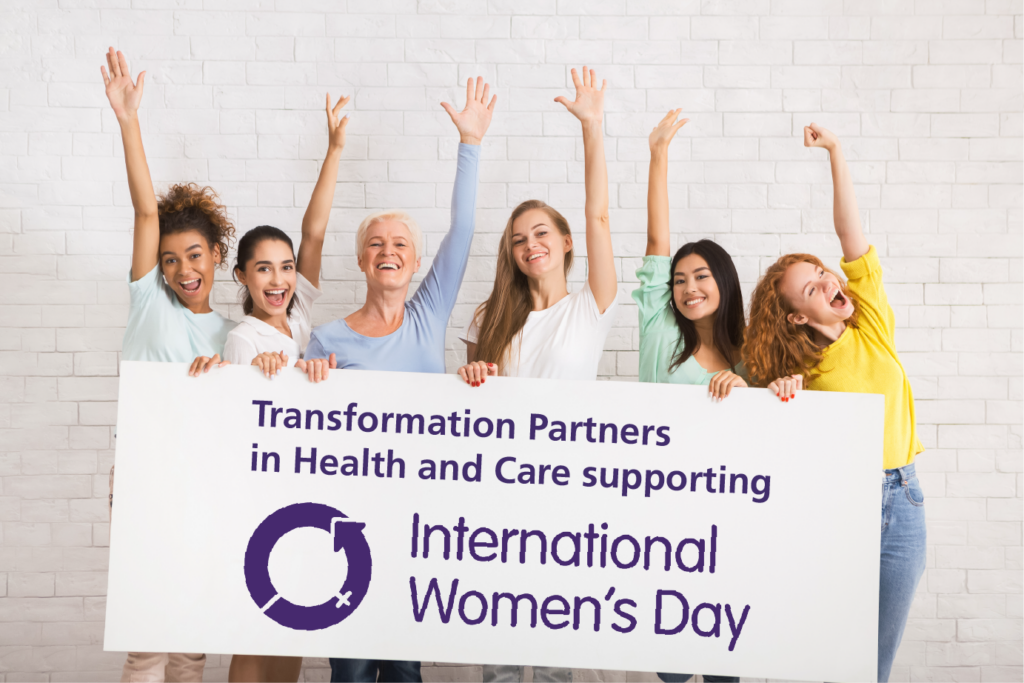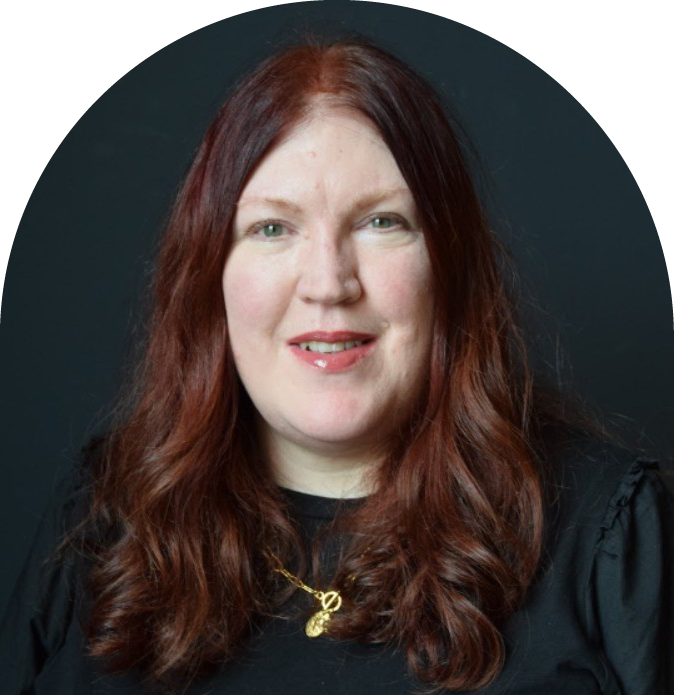International Women’s day 2024 – Inspire Inclusion
Since International Women’s Day last year, we have much to celebrate, we have seen a great deal of work and development across London. Within TPHC, we have continued to build momentum on the work we are doing to improve, progress and re-shape health and care services for women and girls.

We are thrilled to be able to highlight five projects that have supported women and girls over the last year or have plans underway to do so. These range from a series of podcasts aimed at supporting mothers who have navigated trauma, mental health challenges and experiences they never imagined prior to having their babies. Our work supporting London’s maternity workforce, through the Capital Midwife programme, is helping to create a working environment that ensures the diverse maternity workforce in London can thrive and progress. As well as an ongoing project supporting community gynaecology services in North London to propose a new service model approach that is equitable across all boroughs and meets the specification of Women’s Health Hubs.
All of these projects link to the wider, National Women’s Health strategy, published in 2022; the strategy sets out key ambitions and targets, focusing on a life course approach to improve the way our health and care system listens to, engages with, and understands the changing healthcare needs of women and girls.
“It is hugely inspiring to see the amount we have collectively achieved for Women and Girls across London in the last year. I have been working closely with several partners to ensure the Women’s Health Strategy can achieve its aims and ambitions.
Jemma Gilbert, Director of Transformation, TPHC
Across London, system leaders now meet regularly as a community of practice and have explored a range of issues affecting women. Such as, the variation in access to Long-acting reversible contraception (LARC), the impact of violence against women and girls (VAWG), the opportunities to address inequalities, cervical screening, female genital mutilation (FGM) and inclusion health barriers. We still have a way to go, but seeing how far we’ve come this year, I’m excited to see where we are this time next year!”

Explore five TPHC projects working to achieve gender equity and inspire inclusion:
We are working with one of the London Integrated Care Boards (ICBs) to enhance the existing community gynaecology offer and deliver an equitable community gynaecology offer across all boroughs. There is currently no community gynae offer in one of the boroughs, and in the boroughs that do offer this service, the models of care differ.
The TPHC team will be supporting with the development of a case for change document which will outline a proposal for a new women’s health hub service model. The aim is for this to bridge the gap between primary and secondary care, providing care sooner and closer to home for women as welk as reducing acute waiting lists.
There will be a particular focus on ensuring the new women’s health hubs meet the needs of the diverse population of the ICB and help to prevent late presentations of complex gynaecological conditions.
TPHC is supporting North Central London’s Local Maternity and Neonatal System (NCL LMNS) to refresh its equity and equality action plan and prioritise the most impactful initiatives. The work includes:
Putting NCL forward to be part of a national Learning and Action Network to improve the detection of perinatal mental health problems for women and birthing people from ethnic groups with the poorest outcomes.
Improving language services – NCL has a diverse community, and there is a strong link between women and birthing people who need language services, and poor outcomes like stillbirth. A bedrock of good maternity services is giving women choice and ensuring bodily autonomy. Without effective language services this is very challenging.
We are also supporting NCL’s Maternity and Neonatal Voice Partnerships (MNVP) groups, which provide the patient voice in maternity services, by strengthening their links with the LMNS and developing more collaborative ways of working. This will ensure the service-user voice is louder when key decisions are being made.
We know 1 in 5 women will experience mental health problems during the perinatal period.
The Perinatal Mental Health team created a series of podcasts focussing on different areas of perinatal mental health; from the perspective of specialist midwives, healthcare professionals, lived experience practitioners, women/birthing people, and partners.
The podcasts aim to try and dispel some of the myths and taboos around perinatal mental health and encourage open and honest conversations about this element of the perinatal period.
The Capital Midwife programme works to support and improve London’s majority-female maternity workforce, and is run by TPHC on behalf of the London Regional Maternity Team. This has included the development of an Anti-Racism Framework and a Fellowship.
The Fellowship helps band 6 and 7 midwives from the global majority move into leadership roles. Results have been outstanding: 43% (13 out of 31) of Fellows have moved into more senior roles, while 100% of Fellows reported being able to apply their new learnings in the workplace.
The Anti-Racism Framework gives Hospital Trusts a roadmap for developing an anti-racist culture – from debiasing processes, to ensuring global majority midwives are in leadership roles – and gives award for different stages of implementation. Initial results are also very promising: 100% of staff surveyed from trusts that are implementing would recommend it to other trusts.
Both the Fellowship and Framework received the 2023 Royal College of Midwives Award for Equity, Diversity and Inclusion.
We know that 65% of homeless Londoners in temporary accommodation are women and that women who are homeless are at greater risk of domestic violence and abuse.
TPHC’s Pan-London Co-occurring Conditions Programme has worked with experts by experience to co-produce a film, aimed at addressing prevalent myths and stigma often attributed to people with co-occurring conditions of homelessness, substance use and mental health.
The film, Searching for Answers shines a light on two people’s lived experiences, one being Christie, a young mother who shares her story on how being homeless affected her and her children.
Learn more about University of Edinburgh research ‘Hard Edges: The reality for women affected by severe and multiple disadvantage’ here.
Looking ahead
In January 2024 at the National Women’s Health Summit, Secretary of State Victoria Atkins reaffirmed women’s health and maternity care as one of her top priorities as Health Secretary and set out a five-point plan going forward:
- Maternity care that every mother can have faith in.
- Better care for menstrual problems.
- More women’s health hubs offering more treatments.
- Improving fairness and tackling inequalities and disparities.
- More research into the health needs of women.
Since the publication of the Women’s Health Strategy in 2022, every London Integrated Care System has now appointed women’s health ambassadors working alongside public health leaders.

“It makes me very proud to see the work that has been going on to champion what women and girls needs in health and care in 2024. With the many social, mental, physical and economical challenges women face, there has never been a more important time for the Women’s Health Strategy. As the Managing Director of TPHC, leading and supporting my team to continue to be able to work on and implement such important projects to ensure gender equity in healthcare is something I feel very passionate about. ”
Sue Hunter, Managing Director, TPHC
Watch the below Instagram video from Kevin Fenton, Public Health Director for London for facts about women’s health in London, and the work to improve women’s access to care.
